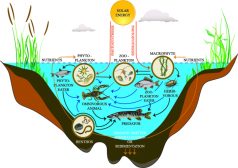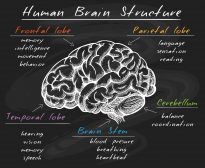Definition
noun
A scientific study of the evolution of the brain by combining the techniques used in paleontology and archeology
Supplement
Neuroscience is the scientific study of the nervous system and is concerned with the structure, development, function, chemistry, pharmacology, and pathology of the nervous system. Modern tools and technologies (e.g. molecular biology, electrophysiology, computational methods, etc.) led to the advancement of research on nervous system. As a result, neuroscience is now comprised of various sub-disciplines. One of them is paleoneurology. Paleoneurology is the study of the evolution of the brain, particularly that of humans. It makes use of the techniques used in paleontology and archaeology. It attempts to provide insight on human evolution for instance with regard to brain endocasts. One of the research areas is the analysis of the cranial vaults in order to study the development of brains and endocranial features and volumes. It is also concerned with fossil skulls, comparing one from the other. It analyzes the similarities and differences between old fossils and the skulls of recently deceased individuals. Comparisons may also be done on skulls between one species to another (e.g. between humans and chimpanzees), focusing on anatomical, physiological, and phylogenetical features.
See also:
- neuroscience
- nervous system
- brain







